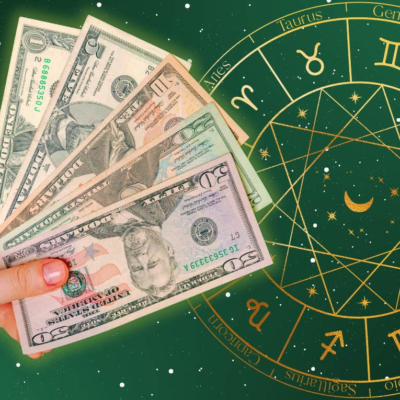We eat more richly than kings and queens of the past. Imagine the grandeur of Louis XIV’s France, where tables encrusted with gold and gems overflowed with lavish feasts, yet something as simple as fresh grapes in winter remained beyond even the king’s reach. Today, such seasonal delicacies are everyday conveniences, effortlessly available in supermarkets year-round. This stark contrast highlights a remarkable shift: many of us in the developed world now enjoy a variety, quality and availability of foods about which kings and queens of old could only dream.
Money, often merely seen as a means of transaction, a store of value, or a unit of account, has evolved significantly over the ages. Its journey from bartered shells to the digital currencies of today reflects not just technological progress but a fundamental shift in societal structures. As we navigate through an era marked by digital transformation and the burgeoning sharing economy, it’s crucial to revisit our perceptions of money. What role does it play in a world where convenience and access are at our fingertips, where luxury and necessity intertwine seamlessly in the fabric of daily life?
Historically, money has been a pivotal factor in social and economic development. From the ancient barter systems to the adoption of precious metals as standardized tokens of exchange, each stage of monetary evolution has been a mirror to human advancement. Coins enabled broader trade networks, paper money democratized wealth beyond the gold-laden vaults of the elite, and digital transactions have unshackled us from the physical constraints of currency. Each leap not only made transactions easier but also broadened the horizon of what could be achieved through economic exchanges.
Today, we stand at the cusp of a remarkable shift in the landscape of convenience and luxury, a domain once reserved for the affluent. A decade ago, the ability to summon an assortment of items to one’s doorstep with minimal effort was a privilege typically enjoyed by the wealthy, who might send an assistant to fetch anything from sunscreen to gourmet snacks. However, during a recent weekend getaway, I experienced this luxury firsthand through my smartphone. With just a few taps, essentials like sunscreen, a hair clip, and a refreshing drink were effortlessly delivered to my hotel room for a minimal cost. This service, which once would have required the resources of the very rich, is now accessible to a broad audience, illustrating the profound democratization of luxury that digital platforms have enabled.
The sharing economy further exemplifies this shift. Platforms like Uber and Airbnb showcase a move from ownership to access, reflecting a change in how we view possession and utility. Money in this economy doesn’t just buy things; it unlocks experiences and services with an efficiency that ownership could never afford. This model leverages digital money to facilitate seamless exchanges, turning every smartphone into a gateway to services that once required significant physical and financial investment.
This democratization of luxury and convenience highlights a significant societal transformation. In the coming decades, as we venture further into the realm of digital transformation, we approach a future that might resemble the economic model of Star Trek — a society where money is obsolete, and the focus shifts from wealth accumulation to exploring, learning and personal fulfillment. In this potential future, the essence of money as a means of exchange could give way to a structure that supports a broader realization of human potential and collective welfare. Such a world invites us — individuals, investors, business leaders and more — to reconsider what we value most and challenges us to think beyond the traditional confines of economic systems.
As we embrace the present and the future, we must think about what money means for us, not just to us. I’m introducing a new concept to help us think about what money means for us: the financial love language. Much like the traditional love languages developed by Gary Chapman that help us understand emotional needs, financial love languages describe how we derive value and satisfaction from money. The financial love languages are:
The Rolling Stone Culture Council is an invitation-only community for Influencers, Innovators and Creatives. Do I qualify?
1. Positive Financial Identity: People who value this might find satisfaction in others perceiving them as financially successful, or seeing credit score improvements, receiving affirming financial advice from experts, or even social validation for smart financial choices. They see money as a way to build and affirm a secure, successful identity.
2. Experiences: This language translates into valuing the experiences that money can buy, such as travel, dining out, or personal services like spa treatments and personal training. Here, money is appreciated for its ability to facilitate life-enhancing services and experiences that provide convenience, pleasure, or personal growth.
3. Tangible Items: In this context, money is valued for its ability to acquire tangible items like jewelry, technology, homes, vehicles, and other luxury goods. These purchases are seen not just as possessions but as physical manifestations of success, status or personal worth.
4. Quality Time: Money provides opportunities to enjoy quality time, either alone or with loved ones, without the stress of financial constraint. This can include vacations, hobbies or cultural activities like attending concerts, theater or sports events. The value is placed on using money to create the space for memorable moments.
5. Physical Comfort: Money’s role here can be seen in the investment in items that offer physical comfort and well-being, such as a high-quality mattress, comfortable furniture, high-quality foods or even clothing and personal care products. This also extends to health and wellness spending, such as gym memberships, massages or medical care that physically benefits the individual.
As we continue to embrace the digital and shared economies and move to our Star Trek-like future, let us reframe our view of money. Let it not be a master nor a mere tool for transaction, but a key to unlocking a life rich with purpose and connection. How does money serve us? This question, more than any other, might define the future of our personal and collective journeys in this rapidly evolving world. What is your financial love language?





